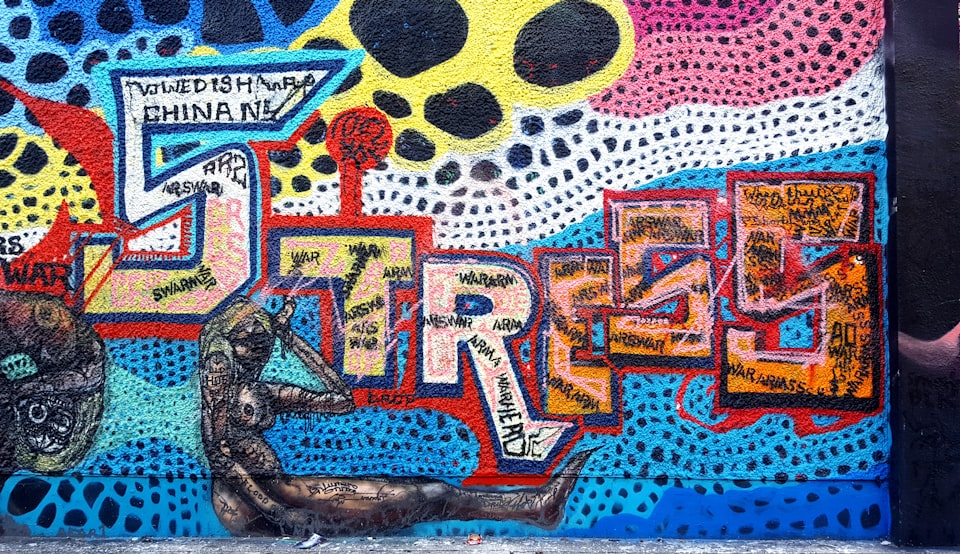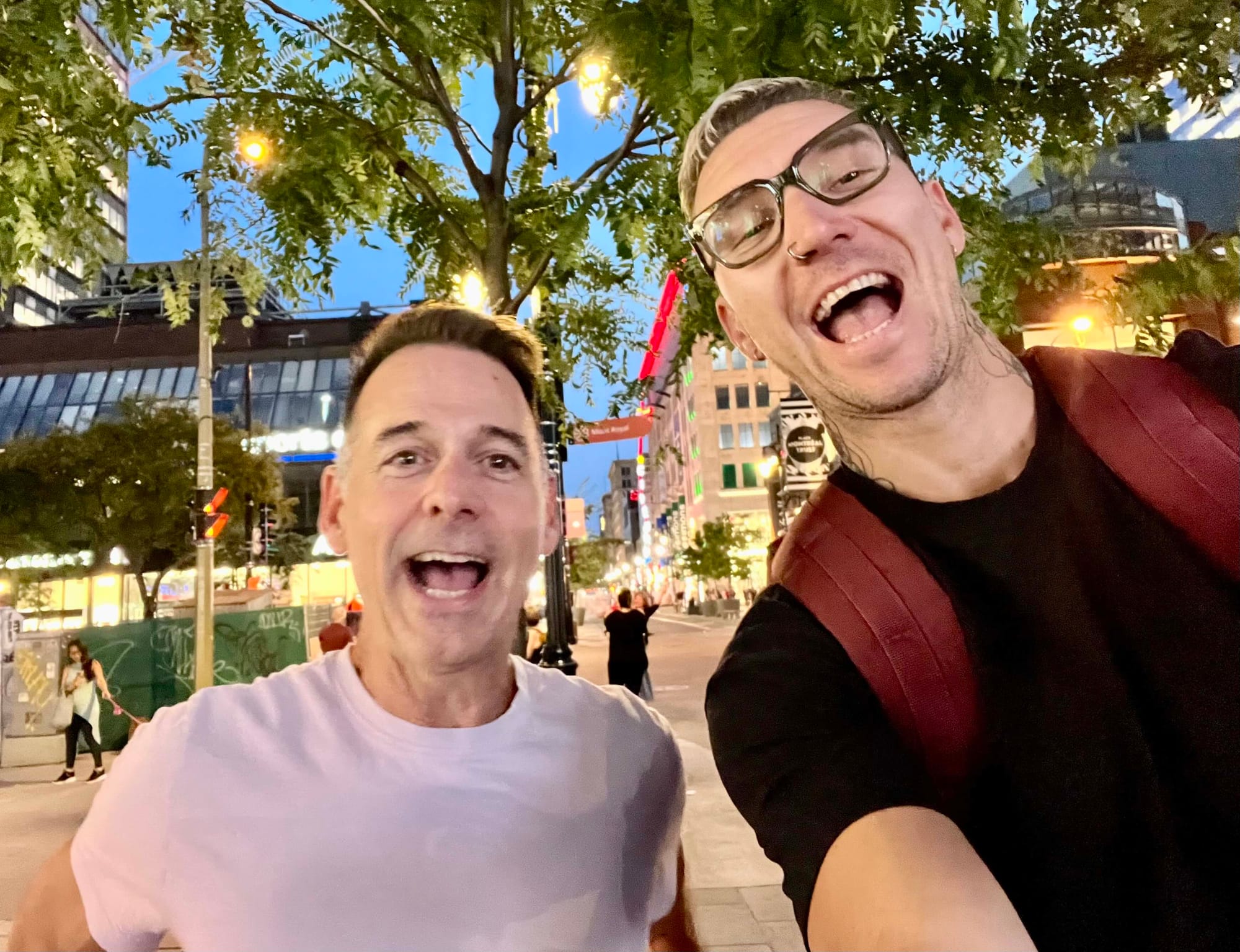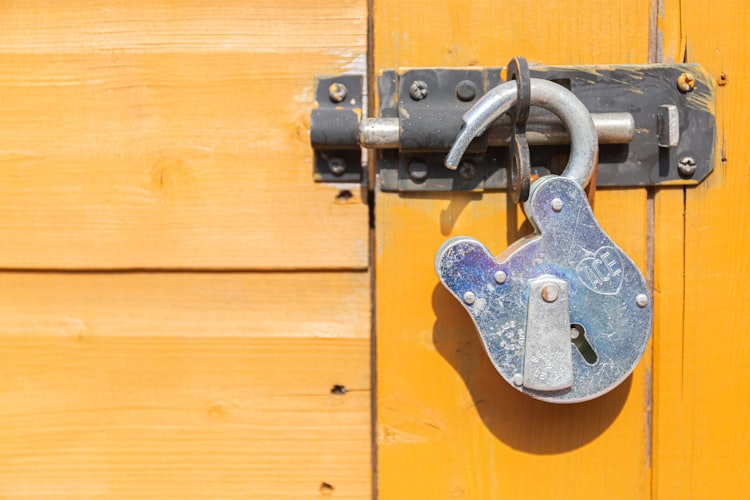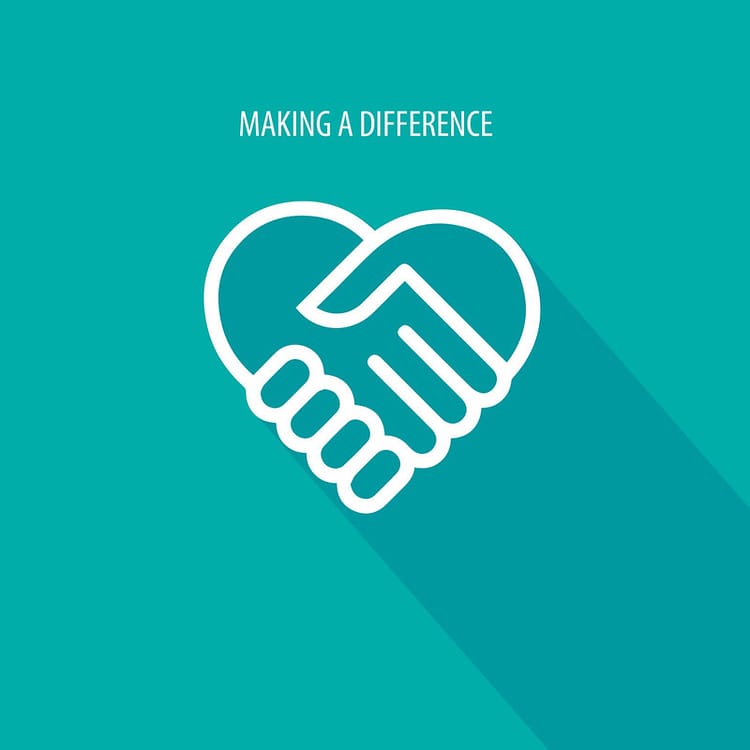A 5-Month Journey of Disruption and Rediscovery: Navigating Major Life Stressors

Knowing how to step back from stress is the balancing act required to create resilience to disruption.
A lot has happened in the past six months that accounts for my radical drop-off in publishing new content.
In July, a few major events happened back-to-back.
On Friday, July 14, my partner, Christiaan, received a job offer in Montreal.
On Monday, July 17, I sprained my ankle while walking our dog, Scooby — the first day of my vacation from work for a week. I was unable to put any weight on my right foot for a few days, which presented a challenge. Christiaan was taking the train early Wednesday to Montreal to find an apartment (which he did), and would return late Friday. I had to call on some help to give Scooby at least one long walk a day.
The following week, Christiaan started to pack, and we moved him together from Toronto to Montreal on Saturday, July 29.
What helped with this challenging and disruptive period, was that I was able to stay in Montreal with Christiaan and Scooby, working remotely, and enjoying a city we both love — a city we have wanted to move to for years. Montreal has a charm unlike Toronto, and it’s one that we deeply connected with when we spent a month living in Montreal in 2021. It is a people and culture city: people go out to enjoy the many pedestrian-only streets, enjoy great food and microbreweries, partake in various outdoor festivals, run or bike the many paths along the canals, or enjoy the beauty and greenery of Mont Royal.
In the first week of September, Scooby and I reluctantly returned to Toronto.
While the apartment still had many of our shared possessions and memories, it no longer felt like a home without Christiaan. The unanswered questions were, “How soon can I move to Montreal,” and, “What kind of employment I will have?” Sometimes, circumstances prevail that push you forward without a perfectly laid out plan.
Near the end of October, my full-time job ended.
While this was one more disruption, the change certainly made it easier to move to Montreal sooner.
I picked a date, and then changed it to a week earlier, but I was naive in thinking packing up what remained in our Toronto apartment wouldn’t take long. It’s not that I have a lot of nick-knacks or unnecessary things. However, I didn’t account for how long it would take to sort through more personal items like books and notes from University — items I simply keep moving from place to place without ever unpacking them.
While sorting through old essays and books from my studies in German Language and Linguistics at university, I was melancholic and sadly nostalgic for a significantly meaningful period in my life.
I was viscerally reminded of the empowering impact of my former mentor and advisor, Jutta Goheen, when I found my unfinished Research Essay — a feminist-linguistic critique of German grammars and their influence on sexism in society. In 1994, I came close to having a nervous breakdown, eventually withdrawing from my Master’s program — which paralleled a bit too closely how I was feeling in the present moment.
Finally, Christiaan arrived a few days beforehand to help with my official move to Montreal — our new home — that happened on Saturday, November 25.
During this disruptive period, I experienced 3 of the top 5 life stressors
Between the end of July and November, I experienced two moves, a change in my employment, and separation from my parter — each event considered one of the top 5 most stressful events in life.
In late September, the emotional separation from Christiaan began to take a toll, making me physically anxious.
I felt like I couldn’t sit still, I was fidgeting more than ever, wasn’t sleeping well, and was irritable all the time. I also had the full-time responsibility of taking care of Scooby — which sounds like a complaint. Scooby is a rescue with an aggressive behavioural issue towards all other dogs. The energy and attention to his triggers is both physically and emotionally draining.
I struggled with exhaustion, frustration, sadness, loss, anger, and self-pity which pushed me to the limit of what I was able to handle emotionally.
With all the stress, I forgot about my own self-care.
No, that’s a lie.
I consciously chose to ignore my self-care since returning to Toronto in September. Between work and walking Scooby, it felt like I didn’t have enough time to do anything else just for myself. This included working out, writing, and reading.
I was feeling sorry for myself.
That's a poor way to live – and to think. Yet, it's also human. But it negatively affected my self-confidence. I felt incapable of writing anything insightful or useful — thus I published only a few articles in that period — and I felt like I lacked the self-mastery to be a great coach.
Shit happens, but that’s a part of life.
What's important is one’s ability to reflect on events after the fact.
In my case, I had to determine how I could have done things better for my mental health and well-being. Now, if anything like this barrage of life stressors happens again, I'll have healthier coping strategies.
It pains me that I haven't written anything new or published anything recently that could move the needle forward with want to accomplish in my life. I was so completely emotionally tapped out and cognitively worn down that my creative energy was non-existent. However, now that I’ve been in Montreal for almost two weeks and fully settled in, I am beginning to relax.
I'm being mindful to take care of myself — allowing myself to take single, small steps forward to get back on track.
What I want to accomplish will take time, and it’s not going to happen overnight. I also need clarity about what I want, with a suitable plan and strategy. Trying to push through after being out of practice is like trying to lift the same weight at the gym that you did six months ago when you haven’t been to the gym for those six months.
A successful outcome is a process that involves action and the conscious commitment of time.
There is only so much we can accomplish in a day, without creating overwhelm.
Knowing this is an essential and healthy measure of success. I believe that the true measure of success requires the intersection of enjoyment, peace of mind, and attention to one’s emotional and physical well-being, Otherwise, the cost of accomplishment is too high. When your goals negatively affect your health, your relationships, or your financial security, you have to wonder why the goal was so important in the first place.
In the face of life's overwhelming demands, sometimes the most effective response is a measured pause.
Rather than dramatically letting go of everything, it's about a deliberate easing and making time for reflection and self-compassion.
Knowing when and how to step back from the major stress at hand is the balancing act required to make adjustments amid life's disruptions. This is a conscious practice, one that starts with learning how to pull yourself back from losing emotional control and completely stressing out. Every so often, we need to (unfortunately) learn things the hard way to build resilience.
As ridiculous as this might sound, this practice of resilience typically starts with a conscious exhale — a focus on the breath and how you want to respond to what is happening presently, instead of immediately reacting.
Now that I’m on the other side of this disruptive period and recovering, I can tap back into my creative energy.
I'm not going to make any promises or statements about what's coming next, especially when I don’t yet know for sure myself. What I do know is that my future successes require my conscious cultivation of well-being and joy, without exception.






Member discussion